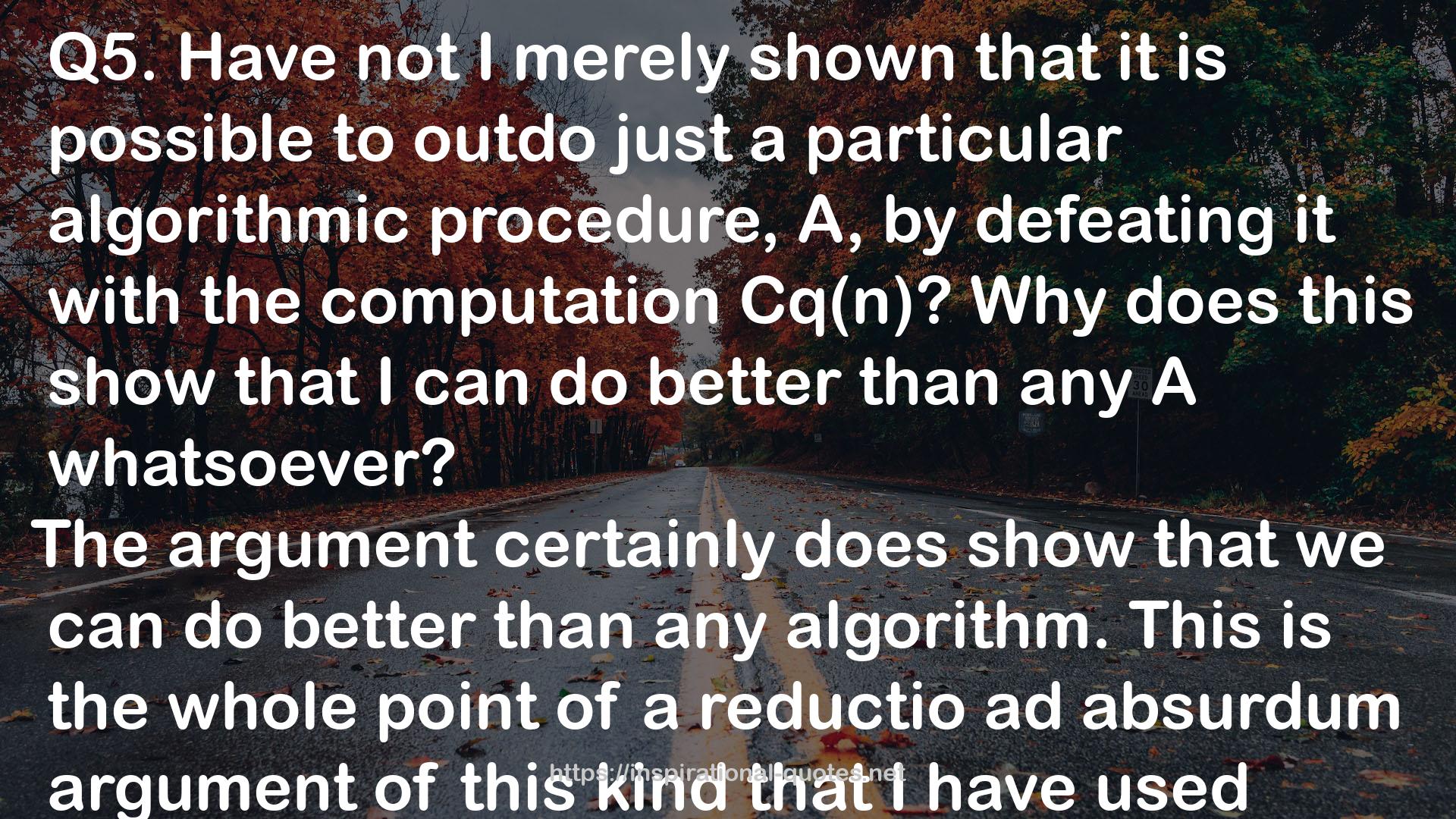" Q5. Have not I merely shown that it is possible to outdo just a particular algorithmic procedure, A, by defeating it with the computation Cq(n)? Why does this show that I can do better than any A whatsoever? The argument certainly does show that we can do better than any algorithm. This is the whole point of a reductio ad absurdum argument of this kind that I have used here. I think that an analogy might be helpful here. Some readers will know of Euclid's argument that there is no largest prime number. This, also, is a reductio ad absurdum. Euclid's argument is as follows. Suppose, on the contrary, that there is a largest prime; call it p. Now consider the product N of all the primes up to p and add 1: N=2*3*5*...*p+1. N is certainly larger than p, but it cannot be divisible by any of the prime numbers 2,3,5...,p (since it leaves the remainder 1 on division); so either N is the required prime itself or it is composite-in which case it is divisible by a prime larger than p. Either way, there would have to be a prime larger than p, which contradicts the initial assumption that p is the largest prime. Hence there is no largest prime. The argument, being a reductio ad absurdum, does not merely show that a particular prime p can be defeated by finding a larger one; it shows that there cannot be any largest prime at all. Likewise, the Godel-Turing argument above does not merely show that a particular algorithm A can be defeated, it shows that there cannot be any (knowably sound) algorithm at all that is equivalent to the insights that we use to ascertain that certain computations do not stop. "
Image for Quotes
